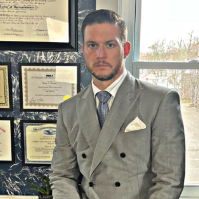Cement City White Collar Crime Lawyer, Michigan
Sponsored Law Firm
-
 x
x

Click For More Info:
-
The Law Offices of Richard L. Cooper, P.A.
848 Brickell Avenue Suite 800 Miami, FL 33131» view mapDWI/DUI, Drug Trafficking, Felony Nationally Ranked Top 40 Under 40
With Richard L. Cooper you can expect a trusted confidant who will work diligently to fully understand your case and determine a road map to help you regain control of your life.
800-756-2781
Not enough matches for Cement City White Collar Crime lawyer.
Below are all Cement City Criminal lawyers.
Michael S. Rosenthal
Lawsuit & Dispute, Family Law, Criminal, Personal Injury
Status: In Good Standing
Alfred P. Brandt
Motor Vehicle, Medicare & Medicaid, Estate, Criminal
Status: In Good Standing Licensed: 39 Years
Christine Ann Beecher
Divorce & Family Law, Criminal, Estate, Child Custody
Status: In Good Standing Licensed: 14 Years
Timothy D. Rothfuss
Divorce & Family Law, Wills & Probate, Misdemeanor, Family Law
Status: In Good Standing
Brian T. Hilderley
Family Law, White Collar Crime, Business
Status: In Good Standing Licensed: 25 Years
Adrienne L. Iddings
Estate, Family Law, Divorce & Family Law, Criminal
Status: In Good Standing Licensed: 30 Years
Andrew Frederick Fink
Municipal, Criminal, Civil Rights, Limited Liability Companies
Status: In Good Standing Licensed: 14 Years

 Richard L. Cooper Miami, FL
Richard L. Cooper Miami, FL AboutMiami Attorney at Law
AboutMiami Attorney at Law ServicesCriminal Defense
ServicesCriminal Defense

